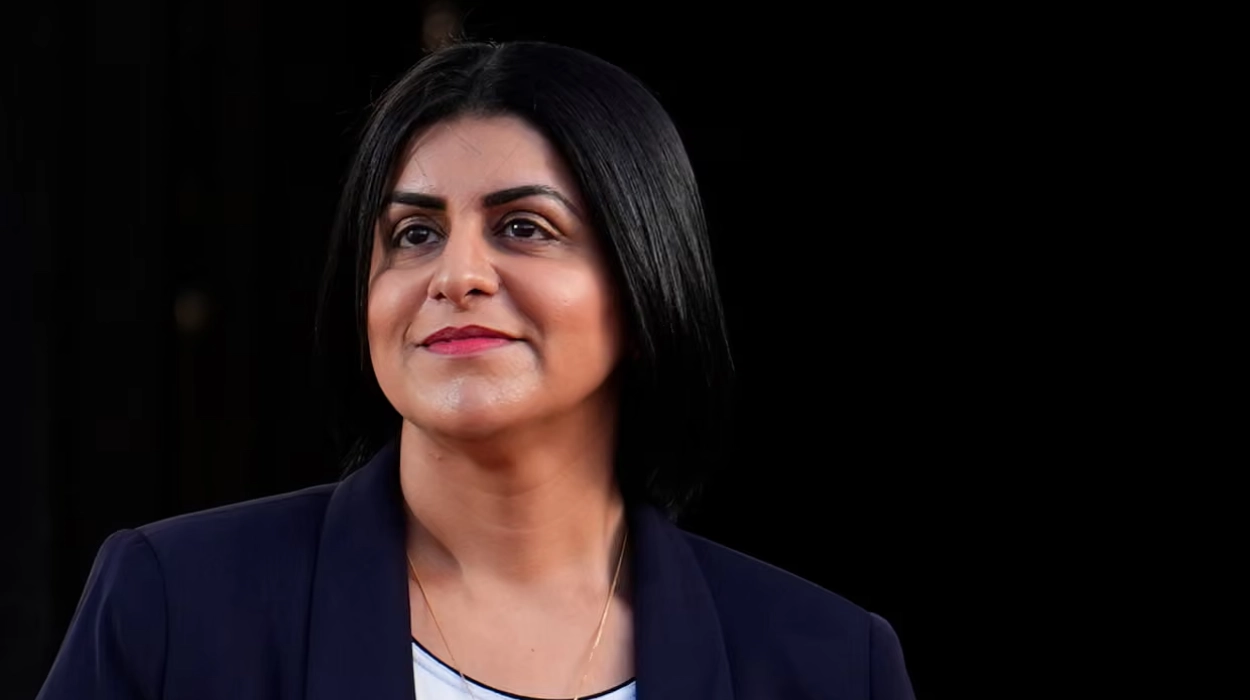UK (Parliament Politics Magazine) – Judges block Home Office from deporting an Eritrean under “one in, one out,” granting him extra time for his trafficking claim.
As reported by The Guardian, the Home Office appeal was rejected as the court granted an Eritrean asylum seeker a temporary block under the “one in, one out” scheme.
How did the court block the Home Office’s deportation of an Eritrean?
The Home Secretary, Shabana Mahmood, had her appeal rejected by three judges, who upheld a high court ruling giving an Eritrean asylum seeker 14 days to gather evidence for his trafficking claim.
The ruling came after the Home Secretary’s lawyers presented their case, while the Eritrean asylum seeker’s lawyers were not heard.
Justice Sheldon blocked the deportation of an Eritrean man, who came to the UK by small boat on 12 August, stopping his planned flight to Paris.
The Eritrean’s lawyers argued in the high court that British trafficking laws grant him extra time to support his claim before deportation.
On Tuesday, Lord Justice Arnold, Lord Justice Lewis, and Lady Justice Laing upheld the High Court ruling, keeping the “one in, one out” scheme intact. However, the decision marks a significant setback for Home Secretary Shabana Mahmood.
Under the “one in, one out” deal, the UK can return Channel-crossing migrants while taking the same number of French asylum seekers. Only three migrants have been returned to Paris under the deal, and arrivals from France to the UK have been postponed.
What did the Home Office lawyers say about the urgent migrant scheme?
Home Secretary’s lawyer Kate Grange told the appeal court there was “considerable urgency” to make the “one in, one out” scheme work.
She said,
“The Secretary of State for the Home Department contends that the judge erred when he determined that interim relief was appropriate.”
Ms Grange stated,
“This case raises an issue of compelling public importance given the significance of the policy of removing to France under the treaty and the acute need to prevent and deter small boat journeys across the English Channel.”
She added,
“The judge’s decision to grant interim relief, and for such a significant period in the context of this policy, causes real damage to the public interest and undermines a central policy objective.”
In written submissions, Sonali Naik KC told the court that the
“judge clearly took account of the material factors and gave proper reasons for them in the context of this highly expedited hearing.”
She said,
“This case should be considered in its own context and on its own facts, and does not have wider significance for others whom the appellant may seek to remove pursuant to the treaty she had entered into with France.”
Ms Naik added,
“This court should not interfere with the judge’s assessment unless it is plainly wrong and the appellant cannot point to any such basis on the material that was before the court or at all.”
What did Judges Arnold and Sheldon say about the Eritrean deportation appeal?
Lord Justice Arnold rejected the appeal, saying,
“The judge made no error of law or principle making the decision he did. None of the four grounds of appeal are sufficiently arguable to have a realistic prospect of success.”
Justice Sheldon stated,
“It seems to me there is a serious issue to be tried with respect to the trafficking claim and whether or not the Secretary of State has carried out her investigatory duties in a lawful manner.”
What did Chris Philp say about the “One in, One Out” deportation scheme?
Chris Philp, the shadow home secretary, stated,
“Yet again the courts have stepped in to block a deportation, proving what we warned from the start, unless you tackle the lawfare strangling Britain’s borders, nothing will change.”
He added,
“This is nothing but a gimmick. Even if by some miracle it worked, it would still be no deterrent, as 94 per cent of arrivals would still stay.”
What did David Lammy say about the France deportation deal?
Deputy PM David Lammy said the France return deal acts as an immediate deterrent and called the pilot scheme “a milestone” for border control.
He added the government expects deportations to increase in the coming months as more small boats attempt the dangerous Channel crossing.
Key facts about the illegal migrants in the UK
By June 2025, there were 49,000 irregular arrivals, 88% via small boats. The main nationalities were Afghanistan, Eritrea, and Iran, with 94% claiming asylum.
Despite a 25% rise in enforced returns, only 3% were sent back. A new UK-France returns deal started in August 2025.

